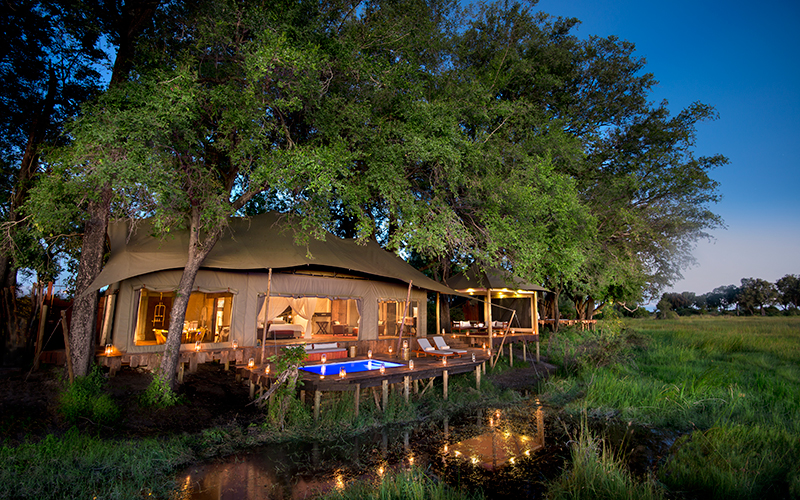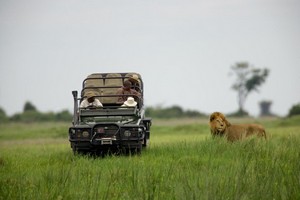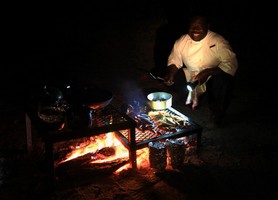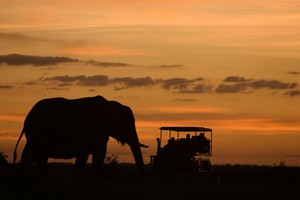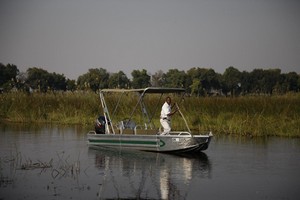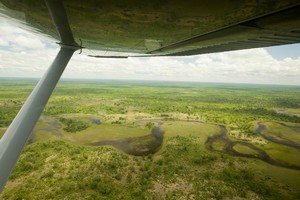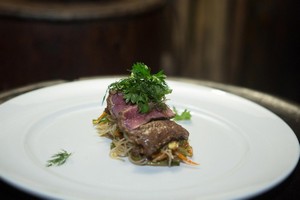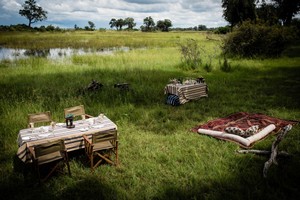Search alternative destinations
Duba Plains Camp
The camp that stands today overlooking a beautiful lagoon, deep in the extreme northern reaches of the Okavango Delta, has its origins as a research camp. This is particularly fitting because the modern Duba Plains embodies the essence of understanding and wonder, of unpacking animal behaviour and immersing yourself in the magic of African wildlife. Located on a private 77,000-acre concession run by the Okavango Community Trust and leased to us, the word “remote” could not be more relevant than here, a place only accessible by plane for most of the year, thanks to Botswana’s Okavango Delta seasonal floods. Six beautifully appointed tents overlook vast floodplains and create an authentic atmosphere of discovery for 12 guests.
Wild animals often wander through camp – a truly magical experience to be celebrated rather than feared! This is “home” for Great Plains Conservation co-founders, and National Geographic Explorers in Residence, Dereck and Beverly Joubert and the remarkable, ever-present lions whose story they have so wonderfully documented over the years.Renowned for their pursuits of the huge buffalo herds which roam the plains, Duba Plains’ indomitable lions have become legends, hunting primarily in broad daylight, at home in water as well as on land as they swim the permanent channels which separate the jigsaw of islands which dot the landscape. But they are not the only inhabitants here… Wildlife diversity is guaranteed at Duba Plains, which offers large concentrations of iconic game such as red lechwe, impala, kudu and tsessebe viewed all year round. Birdlife is abundant, as are the elephant herds which traverse this magnificent wilderness. Culturally, this region of the Okavango has always been relatively sparsely populated by local tribes but is nonetheless a homeland of the Hambukshu, Bayei and Bukakwe people. The cattle-herding Hambukshu came from the rich floodplains of the Zambezi, whilst the Bayei are fishermen and indigenous to the area. They are known for the development of the mekoro, a traditional dugout canoe, used for traversing the shallow waterways of the delta. The Bukakwe bushmen, descendants of the original people who inhabited this land, still live in the village of Gudigwa, not far from the concession.
